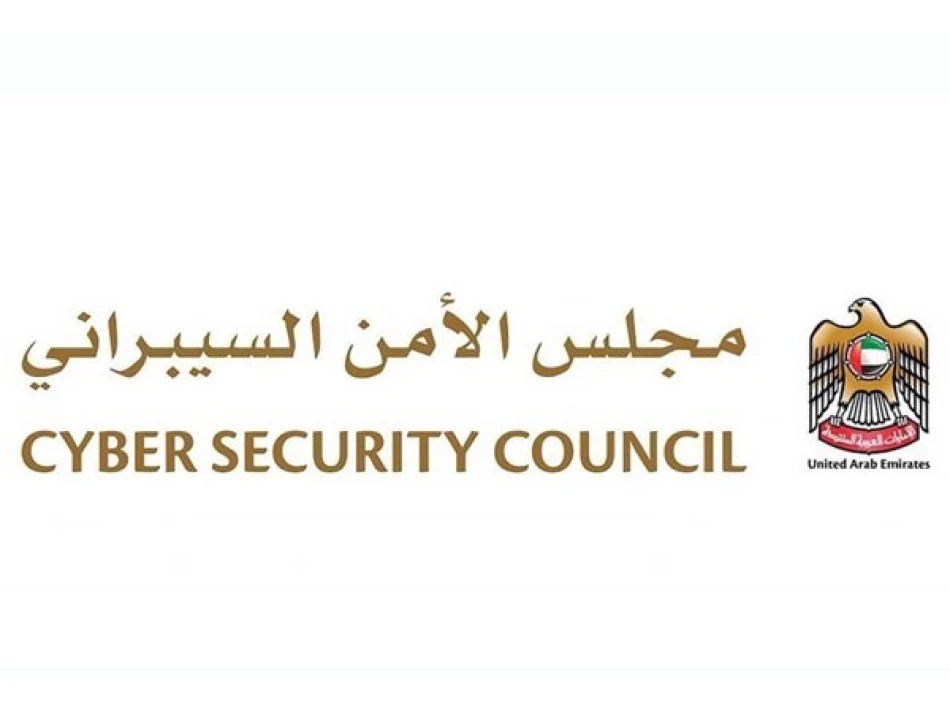
UAE Sees 12,000+ Wi-Fi Hacks in 2023: Cybersecurity Experts Warn of Growing Threats
UAE Reports Alarming 12,000 Cyberattacks Through Free Wi-Fi Networks This Year
The UAE's Cybersecurity Council has revealed a startling statistic that underscores a growing global threat: over 12,000 cyberattacks have been executed through unsecured public Wi-Fi networks in the country since January, representing 35% of all cyber incidents. This figure positions the UAE as a bellwether for understanding how cybercriminals are increasingly weaponizing the very connectivity that modern economies depend upon.
The Hidden Cost of Free Connectivity
The scale of these attacks reveals a sophisticated shift in cybercriminal tactics. Rather than targeting complex corporate infrastructure, hackers are exploiting the weakest link in the digital chain: unsuspecting users connecting to free Wi-Fi in airports, shopping malls, and cafes. These networks have effectively become digital honey traps, designed to harvest passwords, banking details, and personal information with alarming efficiency.
Dr. Mohammed Al Kuwaiti, Chairman of the UAE's Cybersecurity Council, emphasized that these statistics reflect a broader challenge facing digitally advanced nations. As the UAE positions itself as a global technology hub, the country's extensive public Wi-Fi infrastructure—while beneficial for business and tourism—has inadvertently created new attack vectors for cybercriminals.
Man-in-the-Middle Attacks Dominate Threat Landscape
The council specifically highlighted "man-in-the-middle" attacks as the primary method used by cybercriminals. These sophisticated techniques allow hackers to intercept data transmissions, redirect users to fraudulent websites, record phone calls, and install malicious software without detection. The attacks represent a evolution from traditional hacking methods, requiring minimal technical infrastructure while offering maximum impact.
Global Context: UAE Joins Growing List of Vulnerable Nations
The UAE's experience mirrors similar challenges faced by other digitally advanced economies. Singapore reported comparable issues in 2023, with public Wi-Fi attacks accounting for nearly 40% of personal data breaches. The United States has seen similar patterns, with the FBI warning that public Wi-Fi networks in major airports and hotels have become primary targets for international cybercrime syndicates.
What distinguishes the UAE's situation is the rapid pace of digital adoption combined with high tourist volumes and international business activity. The country's position as a global transit hub means that millions of international travelers—often carrying sensitive business data—regularly connect to public networks, creating an attractive target environment for cybercriminals.
Economic Implications for Digital Transformation
These security challenges arrive at a critical juncture for the UAE's digital economy ambitions. The country has invested billions in smart city infrastructure and digital government services, with public Wi-Fi networks serving as essential connectivity backbone. The cybersecurity incidents could potentially undermine confidence in these digital initiatives if not addressed comprehensively.
For businesses operating in the UAE, the statistics suggest a need for revised cybersecurity protocols, particularly for employees who frequently travel or work remotely. Companies may need to invest more heavily in VPN solutions and security training, adding operational costs but potentially preventing far more expensive data breaches.
Three-Step Defense Strategy
The UAE's Cybersecurity Council has outlined a practical defense framework that could serve as a model for other nations facing similar challenges:
VPN Deployment: Mandatory use of trusted VPN applications to encrypt digital connections, making data interception significantly more difficult for unauthorized parties.
Secure Browsing Protocols: Activation of safe browsing features in web browsers to prevent access to suspicious websites and malicious content.
Restricted Access Policies: Avoiding login to sensitive accounts—particularly banking and personal email—when using public Wi-Fi networks.
Looking Ahead: Prevention Over Reaction
The UAE's proactive approach, including its weekly "Cyber Pulse" awareness campaign, represents a shift from reactive cybersecurity to preventive education. This year's campaign theme—"Free Wi-Fi Service May Expose Your Personal Data"—directly addresses the misconception that convenience and security can coexist without proper precautions.
The broader implications extend beyond individual user behavior. As 5G networks expand and Internet of Things devices proliferate, the attack surface for cybercriminals will only grow. The UAE's current experience with public Wi-Fi security may serve as a preview of larger challenges facing connected societies globally.
The country's investment in cybersecurity awareness and infrastructure will likely influence how other Gulf states and emerging digital economies approach similar vulnerabilities. Success in containing these attacks could position the UAE as a regional cybersecurity leader, while failure might slow the broader digital transformation goals that underpin its economic diversification strategy.
Most Viewed News

 Layla Al Mansoori
Layla Al Mansoori






